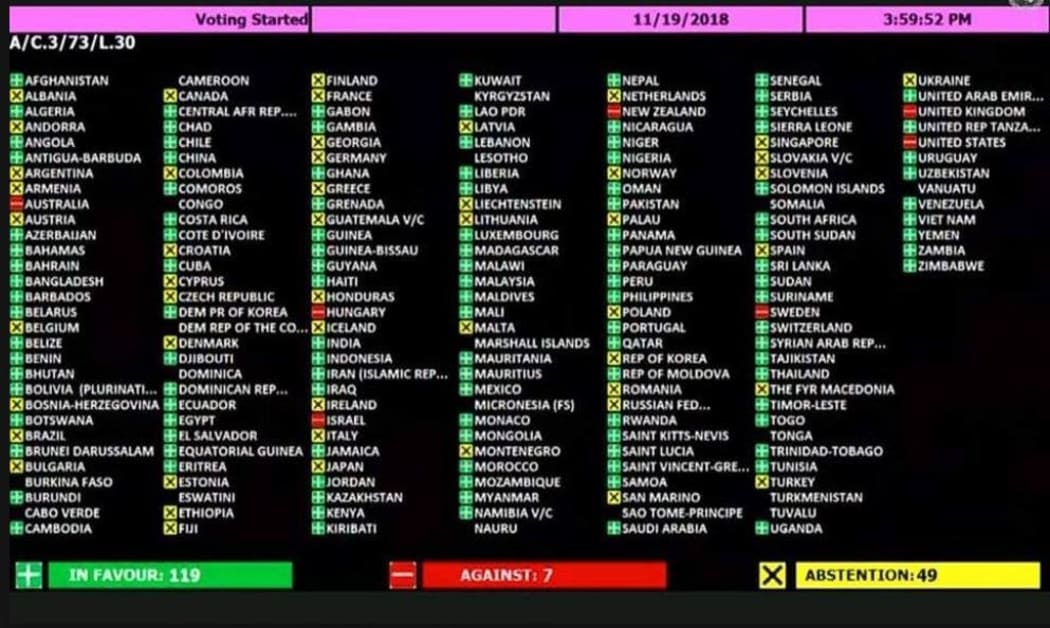
Photo: screenshot
Last month New Zealand was one of just seven countries to vote against the UN Declaration on the Rights of Peasants and Other People Working in Rural Areas.
Supporters claim the declaration will benefit more than one eighth of the world's population.
Professor Smita Narula - a former director of the International Human Rights Clinic at the NYU School of Law - described the declaration as "[A] profound opportunity for the global community to stand up for the more than one billion peasant women and men who feed the world and safeguard our environment."
The vote went unreported by mainstream media in New Zealand - and, as far as Mediawatch can establish - everywhere else in the English speaking world.
The Smita Narula quote is from a video produced by La Via Campesina an international peasants’ organisation that claims to represent more than 200,000,000 peasants in 81 countries and has been heavily promoting the declaration. It's one of the few sources of information in English on the declaration.
Mediawatch asked Foreign Affairs Minister Winston Peters why New Zealand voted against the resolution. His office provided the following statement:
“The existing human rights framework already provides protection to peasants and people living in rural areas, and officials considered that the case was not sufficiently made for subsistence farmers/peasants to be provided with additional normative protections, beyond existing international human rights law. To improve the livelihoods of people living in rural poverty needs a greater focus on implementation, not necessarily on new normative UN frameworks.”
Britain was one of the other six United Nations member states to vote against the declaration, and its representative Julian Braithwaite outlined why at a session of the UN Human Rights Council last September.
"The UK has a series of longstanding serious concerns about the content of the draft declaration," he said.
"It seeks to set out new rights for rural workers that others do not have, including collective rights and to expand upon existing rights.
"Equality and universality are the fundamental principles underpinning human rights with the exception of the right to self-determination we therefore do not accept the concept of collective human rights in international law."
That issue of individual versus collective rights is a live issue here in New Zealand, where leading Māori constitutional experts like Moana Jackson have long argued for a recognition of collective rights.
The UN General Assembly will formally adopt the UN Declaration on the Rights of Peasants and Other People Working in Rural Areas later this month.
The countries that voted against the declaration were: USA, Great Britain, Australia, Sweden, Hungary, Israel and New Zealand; 49 countries abstained and 119 voted for it.

